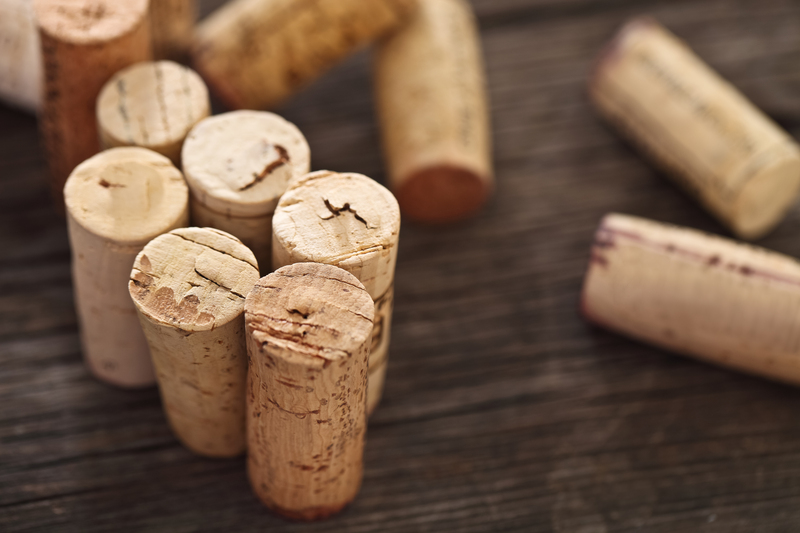Tips for Donating or Recycling Old Pots and Pans
Are your kitchen cabinets overflowing with old pots and pans? Whether they've lost their non-stick coating, sport a few dings, or simply no longer serve your culinary needs, it's important to dispose of them responsibly. Donating or recycling cookware can help reduce landfill waste and even benefit others in the community. In this comprehensive guide, discover expert tips and methods for giving your old cookware new purpose.
Why Responsible Disposal of Pots and Pans Matters
Every year, tons of discarded cookware end up in landfills. Properly recycling or donating used pots and pans ensures valuable materials are given a second life and reduces the environmental impact. Many pots and pans are made from metals like aluminum, stainless steel, or copper, all of which are recyclable. Donating usable items can also help local families, schools, or charities in need.
The Environmental Impact of Cookware Disposal
- Non-recyclable materials contribute to pollution and landfill overcrowding.
- Reusing and recycling preserves natural resources and saves energy by repurposing valuable metals.
- Donating cookware extends product life and benefits communities, reducing waste overall.

How to Decide: Should You Donate or Recycle Old Cookware?
Before you decide on recycling or donating your old pots and pans, assess their current condition. Here are some key questions to ask:
- Are your pots and pans still functional? Minimal wear (like light scratches or faded color) is usually acceptable for donations. Broken handles, warped bottoms, or deeply scratched surfaces may be better suited for recycling.
- What material are your pots and pans made from? Most metals are recyclable, but certain coated pans may need special handling.
- Do they have sentimental or collectible value? Some vintage cookware can be upcycled or resold instead of recycled.
Checklist: Donation vs. Recycling
-
Donate if:
- The cookware is still sturdy and safe to use
- There is no excessive rust, pitting, or flaking nonstick coating
- Lids and handles are intact
-
Recycle if:
- The item is warped, cracked, or broken
- The nonstick coating is peeling, or the pan is heavily corroded
- The materials are entirely metal or mostly metal (for best value)
Options for Donating Old Pots and Pans
If your pots and pans are still in usable shape, donating them is a wonderful way to declutter while helping others. Many organizations accept gently used cookware, but it's important to double-check what each charity needs.
Where to Donate Pots and Pans
- Thrift Stores: Goodwill, Salvation Army, and similar organizations often accept cookware.
- Homeless Shelters: Many shelters cook meals daily and can use durable cookware.
- Food Banks & Soup Kitchens: High-traffic community kitchens appreciate gently used pots and pans.
- Churches & Community Centers: These may host donation drives or know of families in need.
- Online Platforms: Websites like Freecycle, Craigslist, Facebook Marketplace, and local Buy Nothing groups are great for directly connecting with those in need.
Preparing Your Cookware for Donation
Before donating, follow these essential steps:
- Wash thoroughly to remove all food residues and stains.
- Check that lids fit and handles are secure.
- Bundle sets together or clearly label mismatched cookware.
- Disclose any minor flaws to potential recipients or organizations.
Pro Tip: If you have vintage or collectible pots and pans, consider donating them to specialty shops, museums, or selling to collectors who can preserve their value.
Smart Ways to Recycle Old Pots and Pans
Even if your cookware isn't suitable for donation, that doesn't mean it has to go in the trash. Recycling old pots and pans helps recover valuable metals like aluminum or stainless steel and conserves resources. Here's how to do it right:
Finding the Right Recycling Center
- Contact your local waste management service to check if curbside pickup accepts metal cookware.
- Search for local scrap metal dealers who may accept a variety of pots and pans, especially if they are all-metal.
- Check with household hazardous waste collection events for items with plastic, Teflon, or ceramic coatings.
Improve Your Recyclability
- If possible, remove non-metal parts such as plastic handles, glass lids, or silicone covers. This can increase the recyclability and value of your items.
- Some facilities require you to separate materials--for example, place aluminum pans separately from stainless steel items.
- For coated pans (e.g., nonstick or ceramic), check if your recycling center can process them. Some coatings may need to be removed before recycling.
Creative Upcycling Alternatives
Got a creative streak? Consider upcycling your sturdy but no-longer-useful cookware into household decor or garden helpers:
- Turn a vintage saucepan into a planter or flowerpot.
- Make a quirky bird feeder out of a frying pan.
- Use an old stockpot for organizing tools in your garage or garden shed.
Remember: When upcycling, be sure to clean and sand rough edges to ensure safety.
Special Considerations for Recycling Different Types of Cookware
Not all pots and pans are created equal! How you recycle them depends largely on their material and construction.
Aluminum and Stainless Steel Cookware
- These are highly recyclable metals, often accepted by recycling centers and scrap yards.
- To maximize value, remove plastic or rubber components before recycling.
- Tip: Group all-metal cookware together for easier processing.
Cast Iron Cookware
- Cast iron is virtually indestructible and fetches a good price at scrap yards.
- If pan is rusty but intact, consider restoration and donation or upcycling.
- For recycling, make sure the cast iron is clean and free of food debris.
Copper Pots and Pans
- Copper is a high-value recyclable metal. Many recycling centers pay more for copper cookware.
- Remove any non-copper elements--a pure copper pan will be worth more.
Nonstick Coated or Teflon Pans
- These require special handling as coatings can complicate recycling.
- Some facilities may not accept Teflon-coated pans, so call ahead for instructions.
- Consider returning to the manufacturer--some brands run recycling programs for their products.
Ceramic and Glass Cookware
- Many municipal recycling centers do not accept ceramics or glass cookware.
- Check with specialty recycling programs or consider creative upcycling.
Frequently Asked Questions about Donating and Recycling Pots and Pans
- Can you put old pots and pans in the recycling bin?
It depends. Many curbside programs do not accept cookware, especially those with plastic handles or nonstick coatings. Always check with your local recycling provider. - What should I do with cookware that's unsafe for donation?
Recycle them as scrap metal if possible. If not accepted, look for local waste collection days or specialty recycling events. - Are there any pots and pans that cannot be recycled?
Yes. Some ceramic, glass, and coated pans may not be accepted at standard facilities. Dispose of these according to your local waste guidelines. - Is it better to donate or recycle my old cookware?
Donate items in good, functional condition. If they are damaged or unsafe, recycling is the more responsible choice.

Tips for Maximizing Your Environmental Impact When Donating or Recycling Cookware
- Plan ahead: Organize cookware by material and condition before heading to a donation center or recycling facility.
- Ask questions: Contact local organizations to find out what types of cookware they accept and their current needs.
- Support cookware brands with take-back programs: Some brands accept old pots and pans for proper recycling--research brand policies before buying new items.
- Reduce, Reuse, Recycle: Always try to reuse or donate before recycling, and as a last resort, dispose responsibly.
- Spread the word: Share your experience with friends and family to encourage responsible disposal.
Conclusion: Give Your Pots and Pans a Meaningful Second Life
Donating or recycling old pots and pans is not only a responsible way to clear out your kitchens--it's a powerful step towards reducing waste and supporting community needs. With just a little effort and awareness, your old cookware can serve a new home, be transformed into something beautiful, or provide valuable materials for future products. Take action today--start sorting your unused cookware, and give those pots and pans a second chance to shine!
Ready to make a difference? Donate or recycle your old pots and pans and enrich your kitchen, community, and environment, one pan at a time!